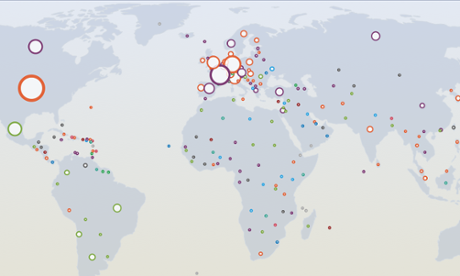
Social scientists have long been engaged in the pursuit of happiness – or, more specifically, finding some way to measure if the world’s citizens are feeling happy or unhappy.
One approach has been that of the OECD. It used an online tool to ask members of the public to rate 11 broad topics that it identified as vital to wellbeing – such as health, housing and life satisfaction – on how important they are.
OECD has used the data it has received since the project started in 2011 to create the Better Life Index, which compares wellbeing across the world.
Since its launch the site has attracted tens of thousands of responses. However, because it is voluntary, and therefore the audience is self-selected, it is not necessarily representative of the views of the global population.
Among those in OECD countries that have used the tool, health narrowly beats general life satisfaction as the topic people identify as most important to them.
The reverse is true in the UK, where the OECD has received more than 4,000 responses – people are most likely to say life satisfaction is the most important of the topics rather than health. This rather vague term is described by the OECD as measuring “how people evaluate their life as a whole rather than their current feeling”.
The OECD launched a map last year to show how the 92,000 responses differed across countries. The US has the biggest wealth of data, with more than 16,000 people having shared their views on wellbeing since 2011.

